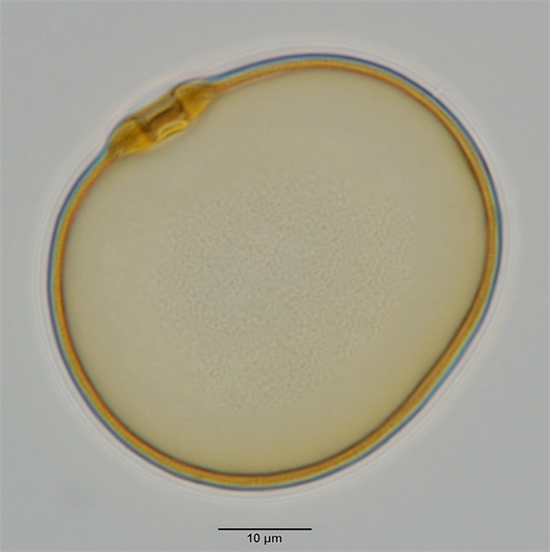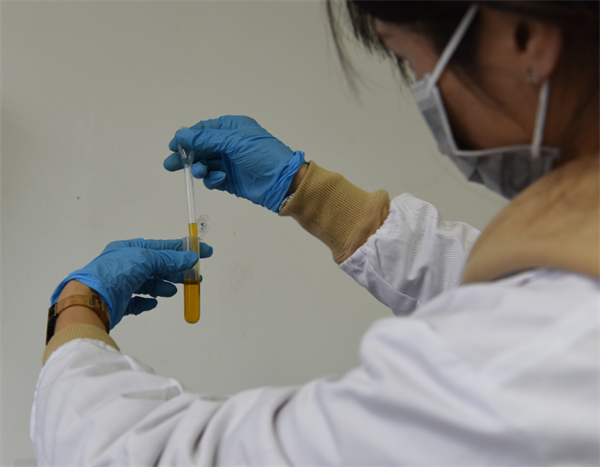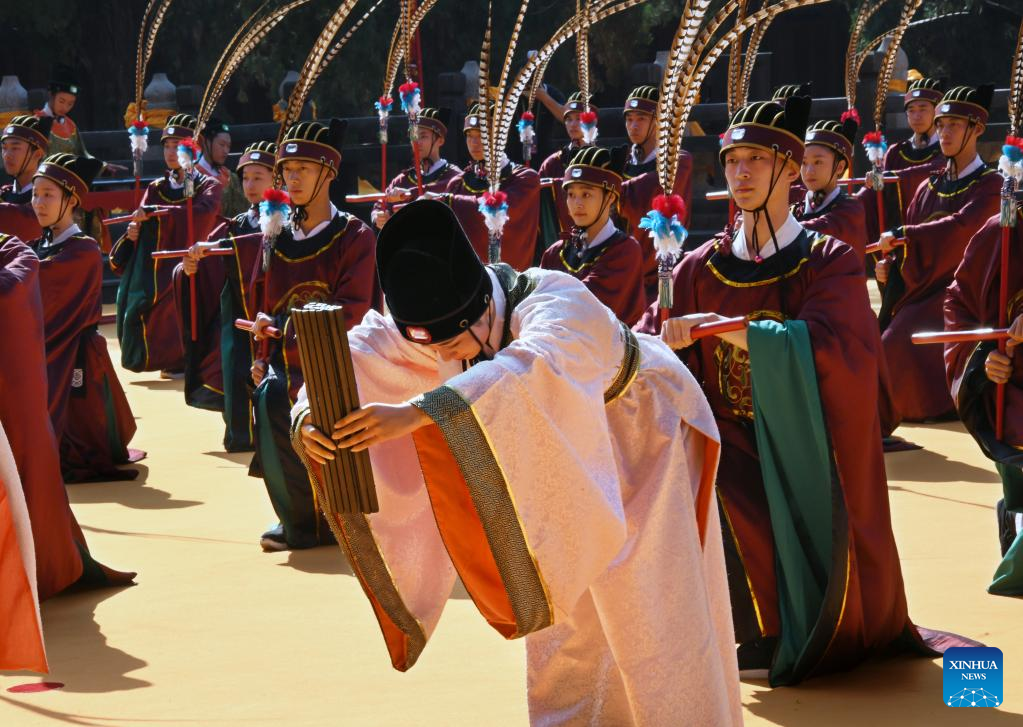
Rice pollen observed under microscope (Photo provided to Xinhua Daily)
New research conducted by the Nanjing Institute of Geology and Palaeontology of the Chinese Academy of Sciences (NIGPAS) discovered evidence of rice pollen and early human activities at the foot of the Purple Mountain in Nanjing, dating back more than 8,000 years, thus extended the timeline of human activities in the lower reaches of the Yangtze River by at least 1,200 years.

Pollen extracted from sediments
Pollen can be preserved in the strata for hundreds of millions of years and offers insight into past environmental conditions like temperature and humidity, providing clues to prehistoric life, explained Mao Limi, a researcher at the institute.
The study identified a significant and sustained increase of graminaceous pollen (at least 38 μm in diameter) associated with rice, starting around 8,200 years ago. This suggests early rice domestication and points to farming activities among the region’s ancient inhabitants.
The research team hypothesizes that the Purple Mountain at that time was full of acorn trees, the climate being stable and favorable, and the Qinhuai River flowing quietly at the foot of the mountain, with early humans gathering for wild fruits, fishing, hunting, and rice cultivation.

Sediment samples
Shu Junwu, an associate researcher at the institute, explained the archaeological excavation reached 16 meters underground, an endeavor impossible through conventional fieldwork in the urban area. These findings help bridge the gap in understanding the Neolithic culture (10,000-8,000 years ago) in the lower reaches of the Yangtze River, underscoring the benefits of technology-enhanced archaeology.




















